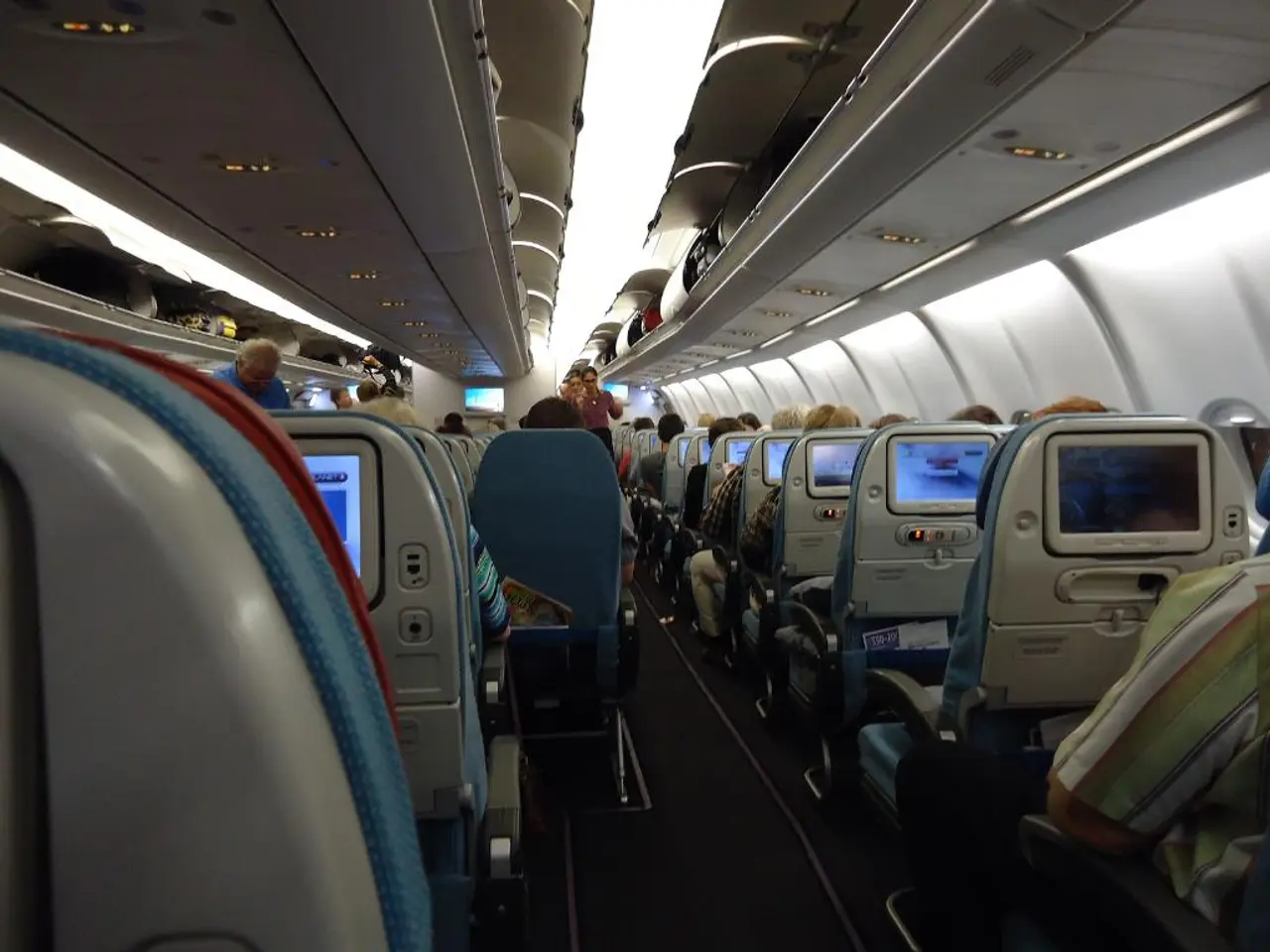Swift Adaptation Proven Overseas for Enhanced Security
Minimizing Jet Lag: Expert Strategies for International Travel
Jet lag, a common affliction of long-haul travelers, is caused by the disruption of the body's natural circadian rhythm as a result of crossing multiple time zones. To help combat this issue, experts recommend a combination of behavioral, environmental, and physiological tactics.
1. Plan Ahead Research the time zone of your destination and adjust your activities accordingly. This way, you can begin to acclimatize before you even depart.
2. Be Consistent Once you've arrived, maintain a consistent sleep schedule. Try to go to bed and wake up at the same time each day, even if it's different from your usual routine.
3. Nap Strategically Aim for short naps to boost energy levels during the day. However, resist long naps after landing to encourage your body to adjust to the local day-night schedule more quickly.
4. Medication Awareness Consult your healthcare provider about potential interactions or adjustments you may need to make while traveling through different time zones.
5. Regulate Meal Times Syncing meal times with the local schedule can help adjust your body's internal clock.
6. Consider Melatonin Supplements Melatonin supplements can aid in adjusting to a new time zone by signaling to your body when it's time to sleep. Timing is key, so take them shortly before your target bedtime at the destination, particularly for eastward travel.
7. Stay Hydrated and Maintain Proper Nutrition Staying hydrated before and during a flight is crucial to minimize jet lag symptoms. Drink plenty of water, avoid alcohol and excessive caffeine, and consider using electrolyte solutions or adding a pinch of sea salt to water to help maintain mineral balance.
Pre-travel Gradual Sleep Adjustment About 3-5 days before departure, shift your sleep schedule by 15 to 60 minutes daily toward the destination time zone. For eastward travel, go to bed and wake up earlier; for westward travel, go to bed and wake up later. This "pre-adaptation" reduces jet lag severity upon arrival.
Strategic Light Exposure Light is the primary regulator of the circadian rhythm. Use bright light therapy correctly: for eastward travel, seek morning light and avoid evening light; for westward travel, do the opposite. Light therapy devices emitting blue light can help simulate these effects and accelerate adjustment.
In-flight Synchronization Set your watch to destination time upon boarding and try to eat and sleep according to the new time zone during the flight. This mental and behavioral alignment helps shift your internal clock even while traveling.
Physical Activity Gentle exercise like walks, stretching, or yoga—especially soon after arrival—stimulates circulation and endorphin production, supporting adaptation and reducing fatigue.
Minimizing Screen Time Minimizing screen time during a flight can help improve sleep and reduce jet lag symptoms.
Arriving at a Good Time Arriving at a destination during the morning or early afternoon can help adapt to local time more easily.
Practice Patience and Self-Care Be patient and give your body the time it needs to adjust. Practice self-care to ensure you're providing it with the necessary rest and care.
These expert-backed strategies combine behavioral, environmental, and physiological tactics to effectively minimize jet lag’s impact and promote quicker recovery from time zone shifts.
- Maintaining good mental health during international travel is crucial. Engage in self-care activities to manage stress levels and maintain a positive mindset.
- A healthy lifestyle is key when traveling. Incorporate fitness and exercise routines during layovers or while waiting for transportation to keep your body active and healthy.
- Science plays a significant role in managing jet lag. Research the effects of melatonin supplements and light therapy on your body, as they can help regulate sleep patterns during travel.
- As you plan your travel itinerary, take into account the importance of sleep in your lifestyle. Prioritize healthy sleep habits and aim for a consistent sleep schedule while traveling to ensure better overall health and wellness.





